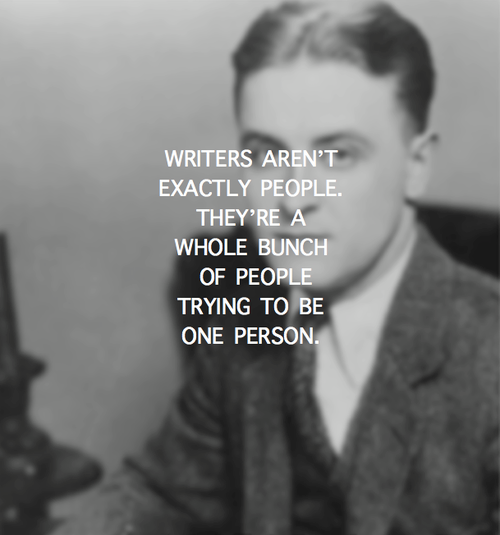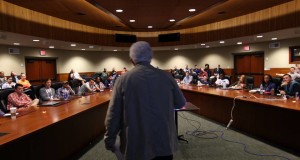
A friend on facebook, who also runs a book-review blog called “Shattering Words,” shared this photo with me, and even though I’m a writer, it took me a while to figure out what it meant. (Maybe I was brain dead that day)
She kind of had to break it down for me, and then it made total sense.
She said:
An author is not only one person when he/she is writing, they have this ability to split themselves into so many characters that it is amazing and beautiful! Also, they – as authors – know how to make themselves become one again without even blinking! It’s so beautiful and impressive that it is only making me want to spend more time with such a person, to try to understand their deepths more.. maybe I am crazy, but I truly love it when human mind is so ready to challenge itself to such a whole new other level!
It’s funny that it took a reader to tell a writer what it’s like to be an author. But she was completely right.
When you write fiction, you’re completely invested in each of the personalities you create in your characters. Authors play the role of creator and creation, all at the same time. It’s strange, and often a haunting thought.
The strangest part is when authors fictionalize their own persona in the form of one of their characters, such as in “Everything Is Illuminated” by Jonathan Safran Foer, where he names the main character after himself (and is, I presume, very much himself).
Oftentimes, I put my worst personality traits in my characters (my tendencies of being too impatient, too rigid, too headstrong, too insecure). And sometimes I put character traits I wish I had in my heroes. Adren Banner is by far my favorite character. Cool and collected and unfazed, even when he has a gun to his head or he’s being chased down by the Duct Tape People. He’s a guy totally in control of the situation, and yet, I’m in control. Me. The author.
There’s always that awkward tension between author and characters. Who’s in charge of the story exactly? Whose personality is really on the page? Whose troubles and problems are we trying to resolve here?
That’s why I love literary fiction most. The characters can’t hide behind the plot. They’re up front and center. They are the story.
And oftentimes we create characters who are totally unlike ourselves. Who are these people? How did they get inside my head? Is my personality made up of people I didn’t even know existed?
And then, once I’m finished writing a story, or I put it down until next time, I’m me again. But so often my mind remains on my characters. So many times I start writing a story without knowing what’s going to happen next, or how it will all end. I usually say to myself, “I’ll let the characters figure it out.” And they always do. Most of the time, they surprise me.
I actually shed tears one time when I was in the middle of killing my characters in a brutal gunfire scene inside a diner in Oklahoma.
That’s why authors take criticism of their work so personal. It is personal. Our work really is us. It’s us in there battling those demons and conflicts. It’s us in there making poor decisions and trying to make sense of life’s chaos.
It’s a wonder that authors aren’t automatically diagnosed clinically insane the moment they decide to take up writing as a career.
What kind of person succumbs to this lifestyle of fabricating lies and spends every effort, every moment, to make those lies appear as real as possible?
And the funny thing, as insane as this may sound, it is our very characters who keep us sane.
I don’t know what I would do if I weren’t allowed to write fiction.
Why, I think, that might drive me crazy.
What about you?
Can you think of any other art form or occupation that requires people to be a little insane?
 Michel Sauret – Award-Winning Army Journalist | Independent Author Award-Winning Army Journalist, Independent Author
Michel Sauret – Award-Winning Army Journalist | Independent Author Award-Winning Army Journalist, Independent Author






Keatsian “negative capability” – another word term for what you’re talking about, I think. Truer of some writers than others. Shakespeare, yes. Not Milton, however. Or Celine. Nice blog. It rings true.
I totally i agree with this whole article. As a fiction writer myself I find that I often have to “become” my character to write. I thought i was the only one who did this and its nice to see otherwise.